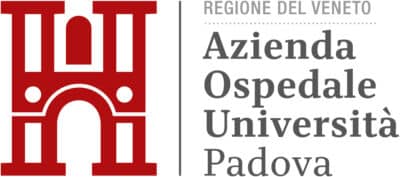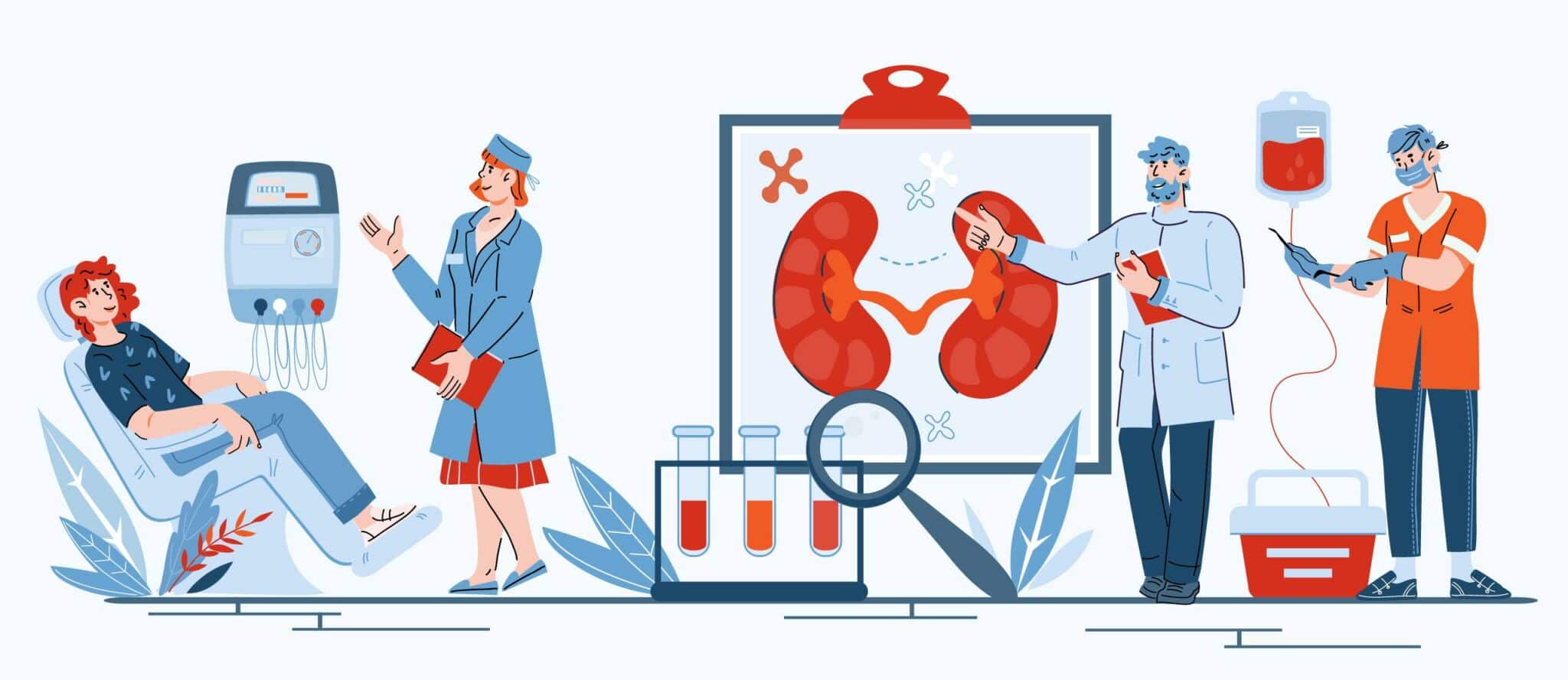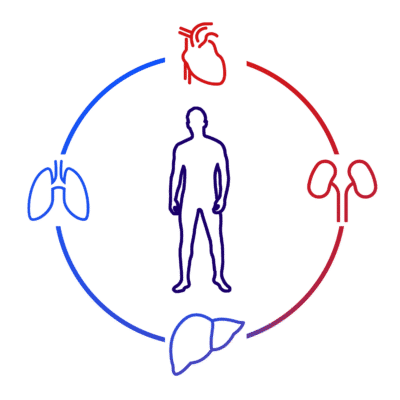

The First-level Short Specialisation Degree in Extra-corporeal Purification Techniques for Critical Patients prepares Critical Area professionals to acquire a specific theoretical-practical profile to manage high-complexity challenges in complete autonomy.
The course includes both strictly-medical and technical/nursing aspects, concerning direct management of the medical equipment and devices used for extra-corporeal purification. Moreover, the competencies acquired will be aimed at managing critically-ill patients suffering from Acute Kidney Injury (AKI) in the Critical Area undergoing extra-corporeal purification treatments.
The purpose of this Master’s Degree is to provide professional figures (doctors and paramedics) with a team-work methodology for a multi-disciplinary management of critical patients undergoing extra-corporeal purification treatments, by focusing and developing professional skills on the use of currently available technologies and by promoting patient safety in this field.
The course units of the First-level Short Specialisation Degree in Extra-corporeal Blood Purification for Critical Patients are grouped by specific areas, as described below. Each area includes a purely theoretical section, followed by a practical part, where attendees will carry out a series of activities, such as workshops, in-vitro simulations, drafting of individual works and group activities.
The most significant topics will be explored further in specific seminars and meetings with field experts, for an interactive debate on the subjects covered during the lessons. During the Master’s course, hands-on modules will be held for each topic, to cover all the hours foreseen to acquire practical notions on extra-corporeal purification. During these modules, attendees will have the chance to follow the clinical and care activities concerning patients treated with extra-corporeal purification directly.
The First-level Short Specialisation Degree in Extra-Corporeal Blood Purification for Critical Patients trains professional figures such as nephrologists, anaesthesiologists, cardiologists, cardiac surgeons, pneumologists and transplant surgeons (and not only these specialists), and nurses on how to manage extra-corporeal blood purification in the Critical Area. Purpose of this Master’s Degree is to train completely independent professionals from a theoretical and practical standpoint, to execute the most common extra-corporeal blood purification treatments in the Intensive Care, Semi-Intensive Care, and Nephrology Haemodialysis Units. By acquiring sector skills, professionals are capable of providing even complex extra-corporeal blood purification treatments, in any critical care setting, whilst ensuring a customized treatment to each patient, patient safety and effective team-work. Moreover, these professionals can also cover organizational and supervisory roles within the team.
The First-level Short Specialisation Degree in Extra-corporeal Blood Purification for Critical Patients includes training in the following macro-areas:
- Acute kidney injury: medical and nursing management of kidney damage, kidney function monitoring in a critical environment.
- Extra-corporeal purification principles: from physical principles to extra-corporeal purification in modern treatment monitors.
- Extra-corporeal purification medical devices: intended use of the most common medical devices and their use in extra-corporeal blood circulation.
- Critical patients in the Intensive Care Unit.
- Critical patients in Cardiology.
- Critical patients in Cardiac Surgery.
- Renal and extra-renal indications for extra-corporeal purification treatment.
- Vascular access to extra-corporeal circulation: medical and nursing management of vascular access.
- Type of purification treatments, indications for treatment and prescriptions.
- Anticoagulation in extra-corporeal purification: citrate, heparin, low-molecular-weight heparin, other anticoagulants, use of methods without anticoagulation.
- Medical and nursing team organization during extra-corporeal purification treatments: from AKI diagnosis to treatment provision, and medical/nursing monitoring.
- Patient safety in the clinical practice of extra-corporeal purification treatment: introduction to patient safety and clinical risk.
- How to map clinical risk in a medical setting: risk analysis and protocol creation, procedures and operative instructions, customized check-lists based on the medical setting.
- Communication within the extra-corporeal purification team and interaction with the multi-disciplinary team.
- Regulatory and financial aspects of the extra-corporeal purification treatment.
- Extra-corporeal purification in emergency scenarios (COVID-19, natural disasters, lack of human and material resources).
The theoretical didactic delivery includes lectures on Friday and Saturday mornings, for a total of 300 hours. On the same days, practical exercises will be organised for the in vitro management of the most common extracorporeal purification equipment.
The lectures will be delivered in a classroom of the Azienda Ospedale-Università di Padova located in via Giustiniani 2, Padua. The exact location of the classroom will be communicated to all participants before the start of the Master’s course, as it is subject to possible variations depending on the availability of teaching spaces and the number of students enrolled in the Master’s course.
The Master’s course attendees will be divided in small groups, based on the total number of students, and will actively take part in the activities of the extra-corporeal purification team. Doctors will follow the complete treatment course, from AKI consultancy to purification treatment delivery and monitoring, while nurses will follow the entire patient care course, from consultancy to purification treatment administration and management. Both figures will be formed on monitor preparation and on how to manage and supervise the treatment, through direct lessons in the different Intensive Care Units, in the presence of the clinical activity tutors. At the end of each attendance term, periodical meetings are held to explore the most interesting clinical cases further, and discuss the type of purification treatment supplied to each patient in detail.
The general ranking of merit will be published on the Italian page of this Master according to the timing provided in the Call.
Possible presence of 1 study awards of €2,625 to be awarded at the end of the Master’s degree to the best thesis.
Information
FAQ
Yes, the First-level Short Specialisation Degree trains professional figures, doctors and nurses to perform an extra-corporeal purification treatment through the most common extra-corporeal treatment monitors currently on the market. The Master’s practical competencies require participants to prepare, provide and monitor the extra-corporeal purification treatment autonomously. At the end of the course, attendees will acquire the competencies necessary to manage the different treatments and monitors independently, thanks to the hands-on practice completed during the clinical part, through the discussion of medical cases and through active participation to the extra-corporeal purification patient’s entire treatment course.
Yes, the purpose of this First-level Short Specialisation Degree is training professionals, doctors and nurses, capable of working as a team and organizing a service to provide extra-corporeal purification treatments. Theoretical and practical competencies will allow the different professionals to tackle the issues of their fields, and to organize a customized service to provide extra-corporeal purification treatments, according to the setting they work in, and in compliance with treatment options and patient safety guidelines. Moreover, the Master provides a series of tools and skills to carry out local medical risk analysis and organize a service to provide extra-corporeal purification treatments, through the establishment of protocols, procedures, operative instructions and check-lists. These competencies may be used both by a medical/organizational and nursing standpoint to create a team that manages the provision of extra-corporeal purification treatments.
Yes, the First-level Short Specialisation Degree entails a theoretical and practical course, which, starting from the basis of acute kidney damage and extra-corporeal purification, trains professionals by developing the management of the purification treatments currently available on the market, and allowing them to interact within their own healthcare setting, through a specific culture, technical skills and specialized practices, thus improving the quality of the care provided. In any case, any professional, doctor or nurse can access the Master, in preparation for a future job in the Critical Area (Intensive Care Unit, Semi-Intensive Care Unit, Transplant Centre…). The notions acquired will be useful to gain greater professionalism in the Critical Area sector, and to provide extra-corporeal purification treatments.
No, the Master trains professionals in managing patients suffering from acute kidney damage, who require extra-corporeal purification treatments in the Critical Area. In any case, the competencies acquired during the Master will complement those required to manage chronic patients who, by definition, are stable patients and not treated in the Critical Area. The Master will also deal with the extra-corporeal purification techniques usually employed on chronic patients, although only to the extent of their possible uses in stable critical patients. If the professionals are trained and work in a care setting for chronic patients, the competencies acquired during the Master can integrate and increase the competencies in the extra-corporeal purification sector in general, and train professionals who can provide an extra-corporeal purification treatment in the Critical Area, if required or during an emergency.
At the end of the First-level Short Specialisation Degree, doctors will acquire the medical skills to plan an extra-corporeal purification treatment in critical patients, if a nephrologist is not available. If available, the nephrologist will be able to interact to manage the critical patient in a multidisciplinary way. Furthermore, through the acquisition of practical extra-corporeal circulation management notions, they will be able to provide and monitor purification treatments also without trained and specialized nursing staff.
At the end of the Master’s Degree, nurses will acquire all the competencies required to prepare the extra-corporeal purification monitors, to connect and disconnect the patient from the extra-corporeal circulation, to provide and monitor the treatment prescribed by the doctor, and to solve the most common medical and technical issues related to extra-corporeal circulation and management of vascular access.


